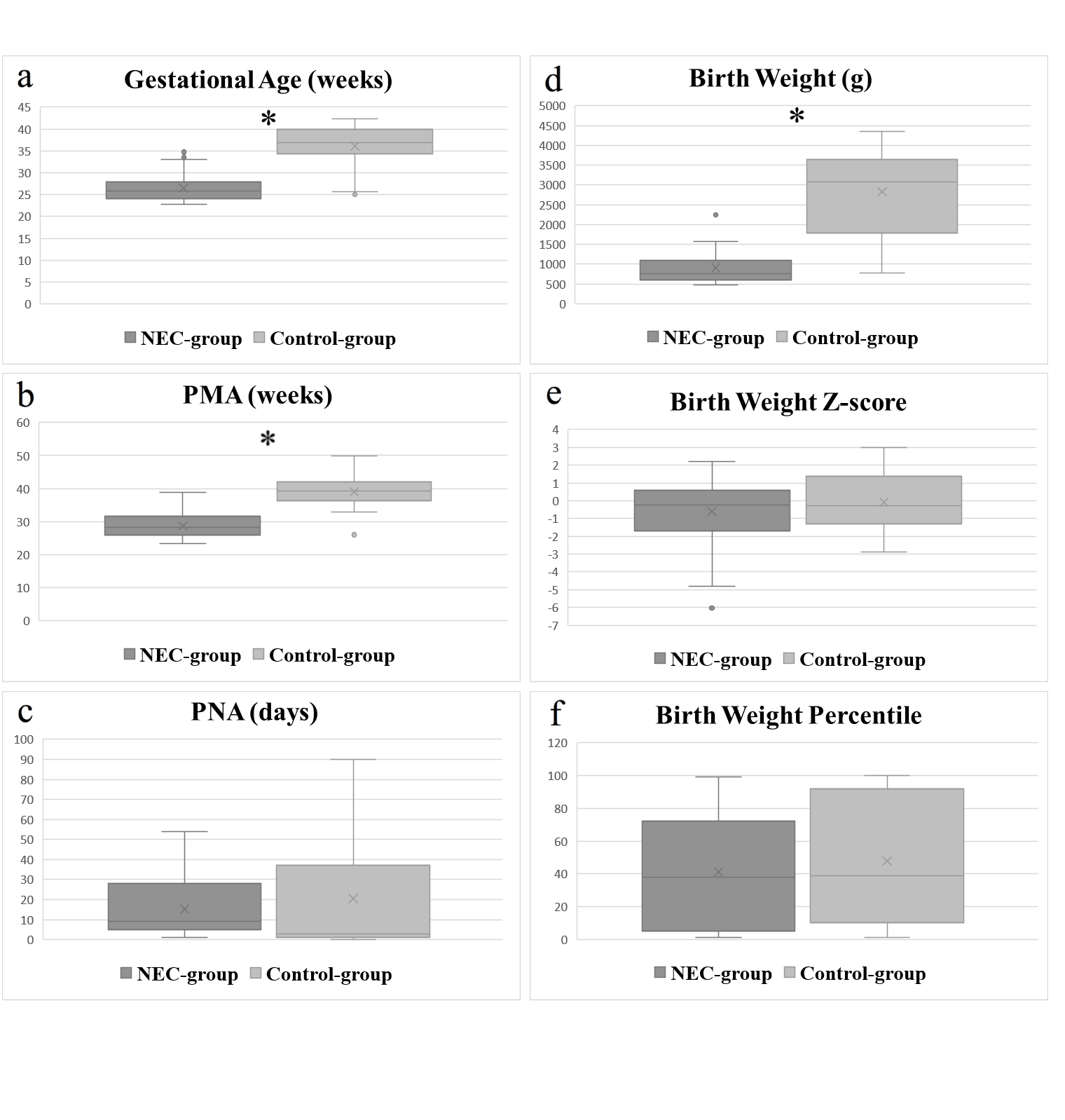Neonatology
Session: Neonatal GI Physiology & NEC 1: Necrotizing Enterocolitis
507 - Goblet cell protein REG4 is reduced in necrotizing enterocolitis in preterm infants but maturational dependency cannot be excluded
Sunday, May 5, 2024
3:30 PM - 6:00 PM ET
Poster Number: 507
Publication Number: 507.2047
Publication Number: 507.2047

Alice Hoffsten
PhD student
Department of Women's and Children's Health, Uppsala University
Norrköping, Ostergotlands Lan, Sweden
Presenting Author(s)
Background: As a protective mucin producing epithelial cell, defective Goblet cells have been implicated in the development of necrotizing enterocolitis (NEC). The selective Goblet cell marker REG4 has been previously studied in inflammatory bowel disease but to our knowledge not in NEC.
Objective: This study aims to study REG4 and its potential involvement in NEC, by exploring its expression in intact intestinal biopsies from preterm infants with and without NEC.
Design/Methods: A total of 70 intact intestinal tissue samples were studied: 43 were collected during surgery due to NEC (NEC-group; 26.5 ± 3.0 weeks’ gestational age [wGA]), and 27 were collected from individuals who underwent surgery due to another condition, such as atresia, dysmotility or volvulus (Control-group; 36.1 ± 4.5 wGA). The tissue samples were immunohistochemically stained for REG4. The REG4 expression was quantified with semi-automated digital image analysis (ImageJ®, freeware National Institute of Health, USA). REG4 expression and clinical data were compared between the groups.
Results: REG4 expression was lower in the NEC-group than in the Control-group (p=0.035). Low REG4 expression correlated to risk of NEC development in the logistic regression analysis (p=0.023). In the multiple logistic regression analysis of NEC-risk, where both REG4 expression and GA were included, the regression model (p < 0.001) was significant for GA (p < 0.001) but not for REG4 expression (p=0.206).
Conclusion(s): Goblet cell function might play a role in NEC development, as low expression of the specific Goblet cell marker REG4 is related to an increased NEC-risk in preterm infants. However, maturity as a potential confounder for REG4 expression could not be excluded.
.png)

.png)
